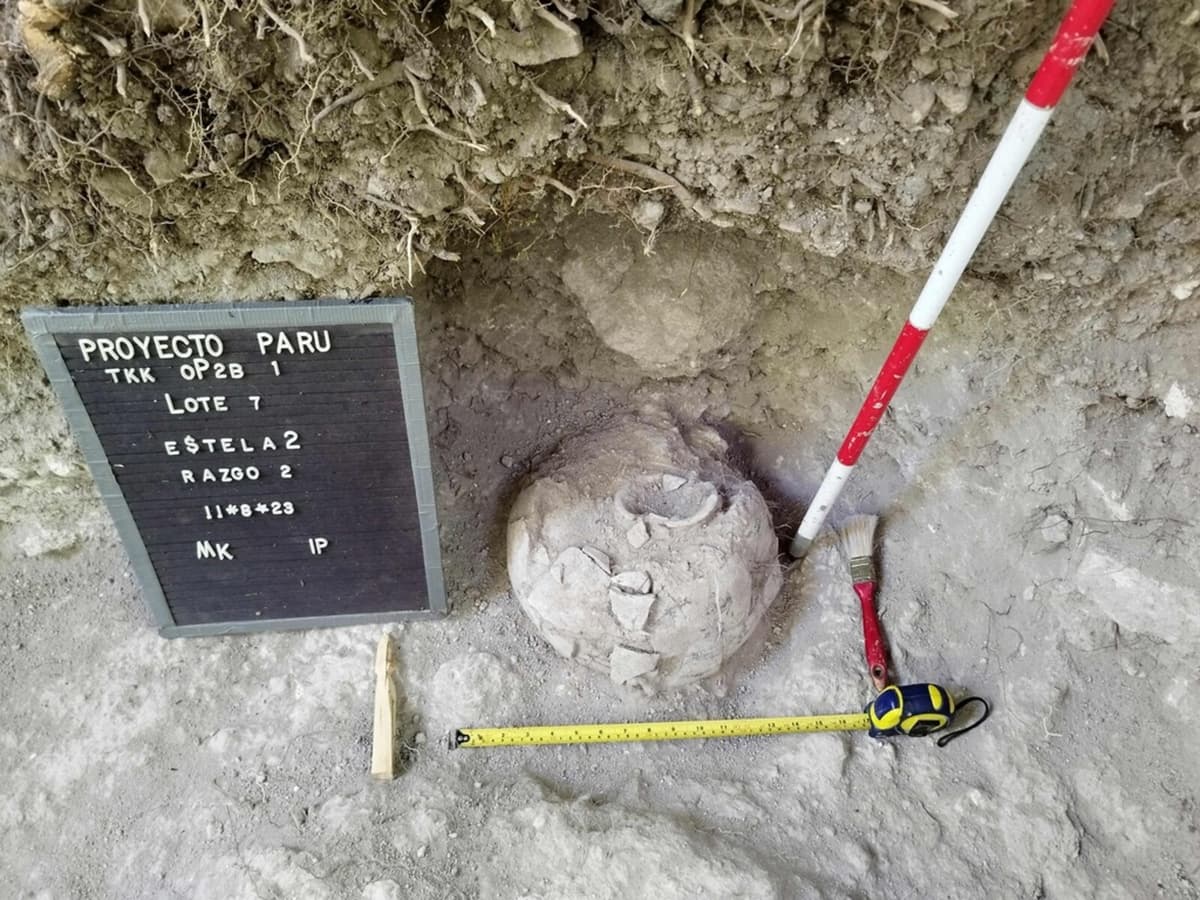The discovery was made in the densely forested Petén region near Mexico, and has been named Abuelos, meaning grandparents. The name refers to two human-shaped stone sculptures found in the excavations, which are believed to depict an ancestral pair.
The city dates back to the middle of the pre-classical period, around 800-500 BC.
According to Guatemala's Ministry of Culture, the find includes several monuments, a sophisticated canal system, and a 33-meter high pyramid with mural paintings. The city spreads over an area of approximately 16 square kilometers and is located just over two miles from the well-known Mayan site Uaxactun.
Los Abuelos constitutes, according to researchers, part of a previously unknown "urban triangle" together with two other contemporary settlements. The system suggests a more complex societal system than previously believed.
The discovery is the latest in a series of archaeological discoveries in the region. Earlier this year, a 1,000-year-old altar from the Teotihuacán culture was discovered in Tikal, which further strengthens the theory of extensive contact between different Mesoamerican cultures long before the Spanish colonization.






